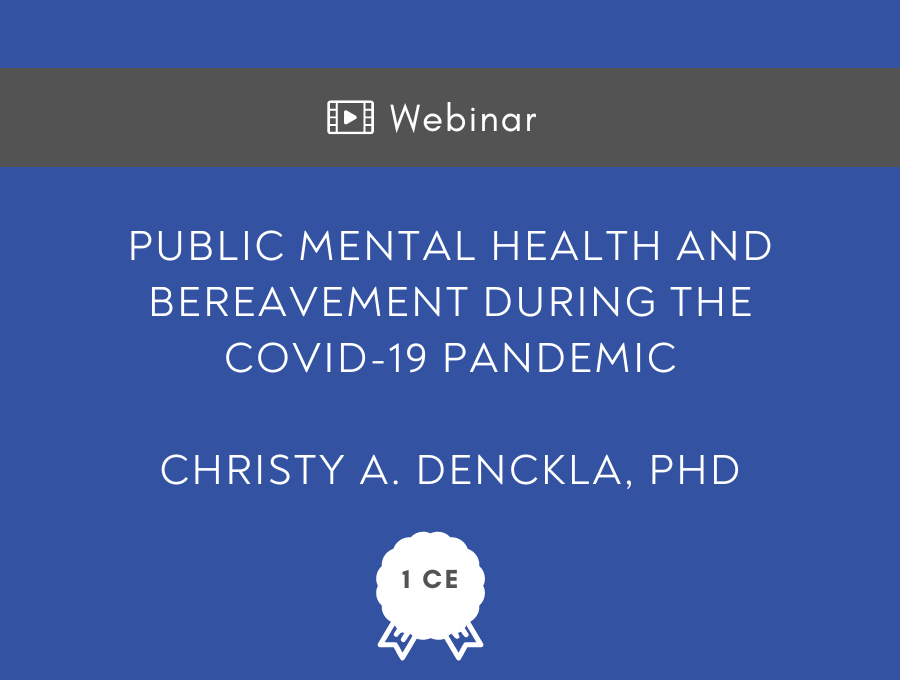
Public mental health and bereavement during the COVID-19 pandemic – 1 CE Hour
About Course
In the wake of the COVID-19 pandemic, hundreds of thousands of lives have been lost globally, leaving millions bereaved. This forum will discuss how public health measures can be deployed to provide support for the bereaved, especially in a context where traditional burial practices have been derailed due to the physical distancing necessary to control the spread of the outbreak.Description
In the wake of the COVID-19 pandemic, hundreds of thousands of lives have been lost globally, leaving millions bereaved. This forum will discuss how public health measures can be deployed to provide support for the bereaved, especially in a context where traditional burial practices have been derailed due to the physical distancing necessary to control the spread of the outbreak.
Webinar recorded on May 1, 2020.
Learning Objectives
- List the unique factors associated with bereavement during COVID-19
- Identify evidence-based public mental health measures for managing stress and supporting well-being
- Describe mechanisms of adaptation among the bereaved
About the Presenter
Dr. Christy A. Denckla is a Research Associate at the Harvard T.H. Chan School of Public Health and a Research Fellow at the Stanley Center for Psychiatric Research at the Broad Institute of MIT and Harvard. Her research aims to understand the impact of adversity and bereavement on psychological functioning and well-being, as well as the mechanisms that appear to drive adaptation. Dr. Denckla’s work on childhood bereavement is funded by an early career K23 grant from the National Institute of Mental Health. She completed her postdoctoral fellowship in Psychiatric Epidemiology at the Harvard T.H. Chan School of Public Health, and her clinical internship at Massachusetts General Hospital, Harvard Medical School. Her doctoral research was completed at Adelphi University in New York.
Continuing Education
American Psychological Association
The Center for Prolonged Grief at Columbia School of Social Work is approved by the American Psychological Association to sponsor continuing education for psychologists. The Center for Prolonged Grief maintains responsibility for this program and its content.
Note: Many state boards recognize the APA approval. Please check with your state licensing board.
New York State Education Department
- NYSED State Board for Psychology recognizes the Center for Prolonged Grief as an approved provider of continuing education for licensed psychologists (#PSY-0150).
- NYSED Board for Social Work recognizes the Center for Prolonged as an approved provider of continuing education for licensed social workers (#SW‐0727).
- NYSED State Board for Mental Health Practitioners recognizes the Center for Prolonged Grief as an approved provider of continuing education for licensed marriage and family therapists (#MFT-0080).
Note: Non-NYS social workers, marriage and family therapists, and other licensed professionals, please check with your state licensing board. Many states have recognized our continuing education programs as we are at a CSWE-accredited institution and part of a regionally accredited university.
Course Content
Public mental health and bereavement during the COVID-19 pandemic
-
Watch the webinar
00:00 -
Take the post-test
-
Webinar Evaluation
00:00
About the instructors
4 Courses
21 students
7 Courses
0 students
33 Courses
344 students
